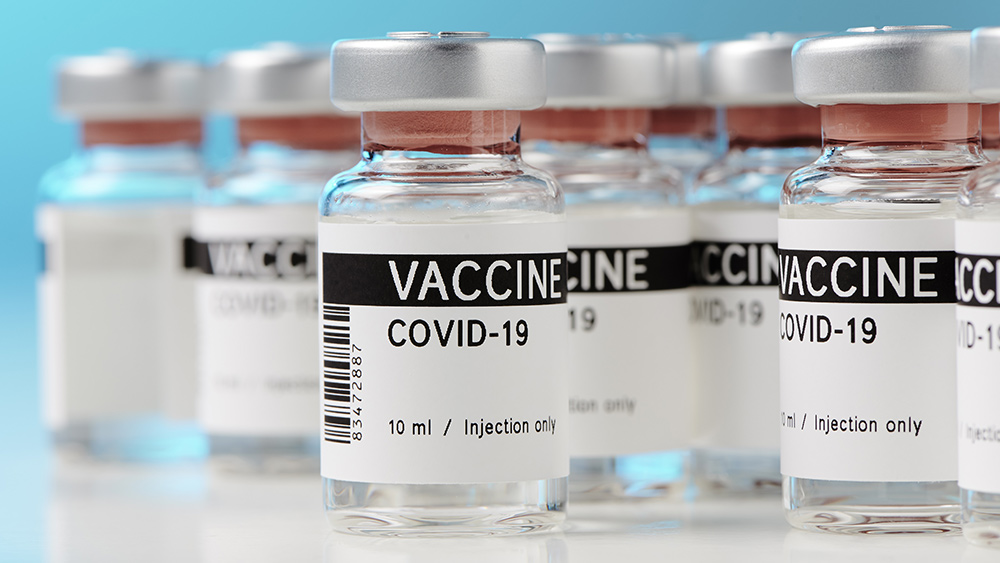Global organizations predict mass starvation amid historic rises in fertilizer, farm production costs thanks to out-of-control inflation
01/28/2022 / By JD Heyes

The world has not had to deal with a massive inflation problem in decades, but the planet is currently in the throes of historic rises in prices for every commodity imaginable, thanks to some of the worst economic policies implemented in a century.
Amid a global supply chain crisis that was wholly avoidable by simply keeping sick people at home and allowing healthy people to continue working in factories, at warehouses, docks and ports, the ‘elite’ leaders of the major countries decided instead to shut everything down for weeks and months on end over a virus that has a 98.5 percent survival rate, regardless of vaccination status.
And now we’re all paying the price, especially in the United States; if the world’s No. 1 economy catches a cold, the rest of the planet catches pneumonia.
Shortages of components and parts have led to shortages of manufactured goods; shortages of those goods have led to higher prices. But what’s also responsible for rising prices are the increased costs of transporting goods to market: Fuel for ships, planes and rail carriers has skyrocketed; labor costs are rising thanks to pandemic-induced labor shortages; and idiot policies like requiring these vital supply chain workers to get a vaccine or stay at home aren’t helping.
Then there are rising food costs, and again, that’s due to several factors as well — higher fuel, supply, and transport costs, among them, but also high production costs.
In fact, thanks to production cost increases, the United Nations and the World Bank are both predicting mass starvation due to a decline in food production globally, which will no doubt lead to even more unrest, pestilence, war and famine.
The Conservative Treehouse explains the significance:
The multinational corporations and quasi-governmental entities in/around the World Economic Forum (WEF) are the people who call themselves “elites” and shape global policy. As a result, when the U.N. and Word Bank start talking about widespread global famine as a result of energy policy impacts to the farming industry, specifically natural gas costs and fertilizer resulting in lower crop yields, it is worth paying attention.
Americans are fortunate enough to be living in a country with plenty of naturally fertile soil. As such, the U.S. has become a net food exporter, but if crop yields in our country decline, that means there will be less food on the global market and that will severely impact nations that already have food insecurity issues.
Fertilizer, especially, is in short supply, and what is available is, of course, more expensive, as The Wall Street Journal reports using just one example:
Christina Ribeiro do Valle, who comes from a long line of coffee growers in Brazil, is this year paying three times what she paid last year for the fertilizer she needs. Coupled with a recent drought that hit her crop hard, it means Ms. do Valle, 75, will produce a fraction of her Ribeiro do Valle brand of coffee, some of which is exported.
There is also a shortage of fertilizer. “This year, you pay, then put your name on a waiting list, and the supplier delivers it when he has it,” she said.
The shortage has also hit U.S. farmers but in response, they are simply shifting their planting season somewhat to the right. In other countries, however, the impact of those shortages means that crops won’t get planted at all, and food production will decline dramatically.
That’s going to impact global food security, no question about it.
“Lower fertilizer use will inevitably weigh on food production and quality, affecting food availability, rural incomes and the livelihoods of the poor,” Josef Schmidhuber, deputy director of the United Nations Food and Agriculture Organization’s trade and markets division, told the WSJ.
The global elites who make decisions like shutting down manufacturing and implementing policies that make producing what modern and developing societies need to function are not stupid people. They may be political, but they’re not dumb.
So if you believe that these ‘lunatic’ policies are being implemented on purpose to hurt societies and make people more reliant on the globalist power brokers, your instincts are spot-on.
Sources include:
Submit a correction >>
Tagged Under:
big government, economics, energy prices, farming, fertilizer, food collapse, food insecurity, food production, food security, food supply, global economy, global elites, harvest, inflation, pandemic, price increase, United States
This article may contain statements that reflect the opinion of the author
RECENT NEWS & ARTICLES
Pandemic.News is a fact-based public education website published by Pandemic News Features, LLC.
All content copyright © 2018 by Pandemic News Features, LLC.
Contact Us with Tips or Corrections
All trademarks, registered trademarks and servicemarks mentioned on this site are the property of their respective owners.





















